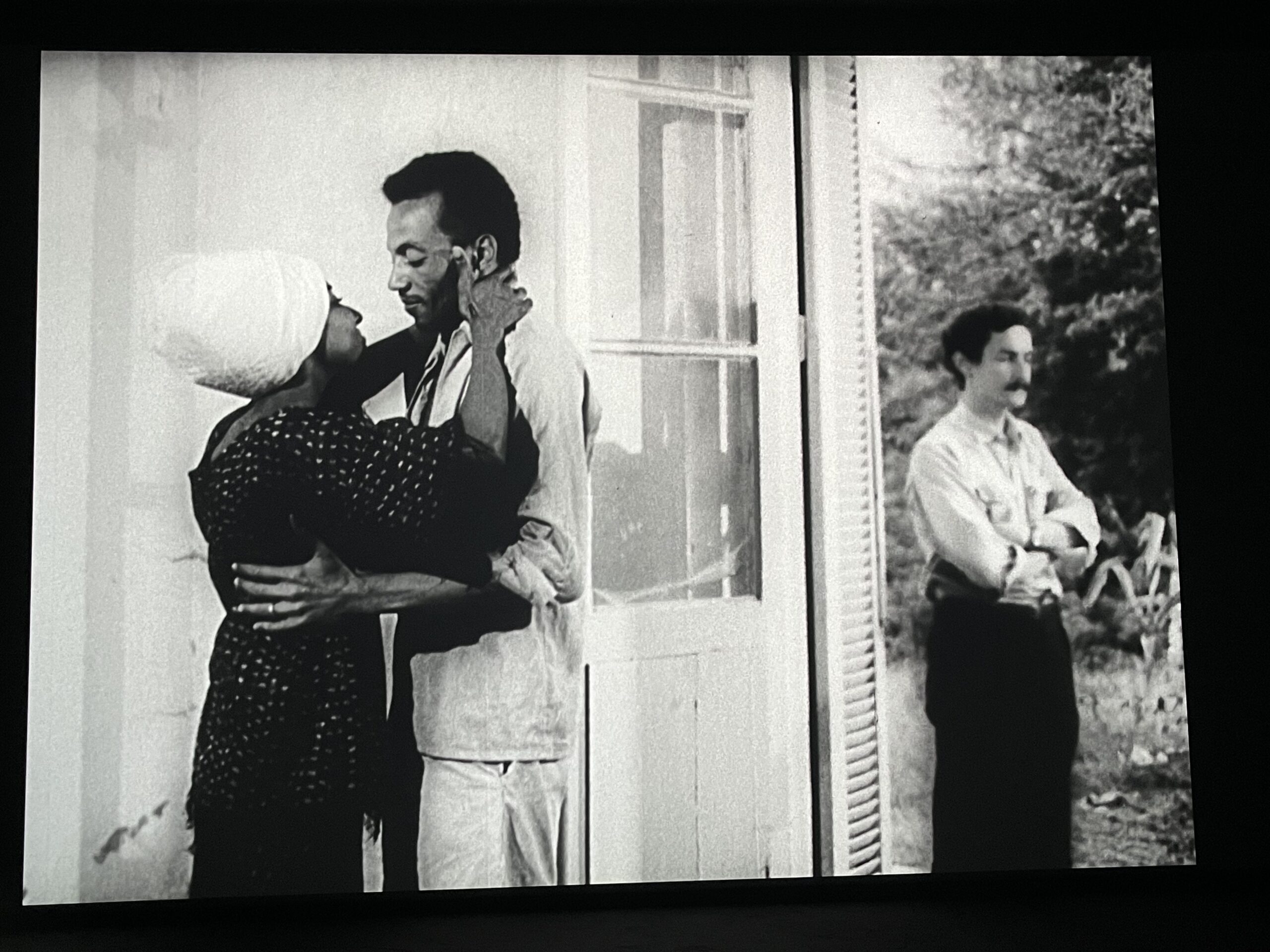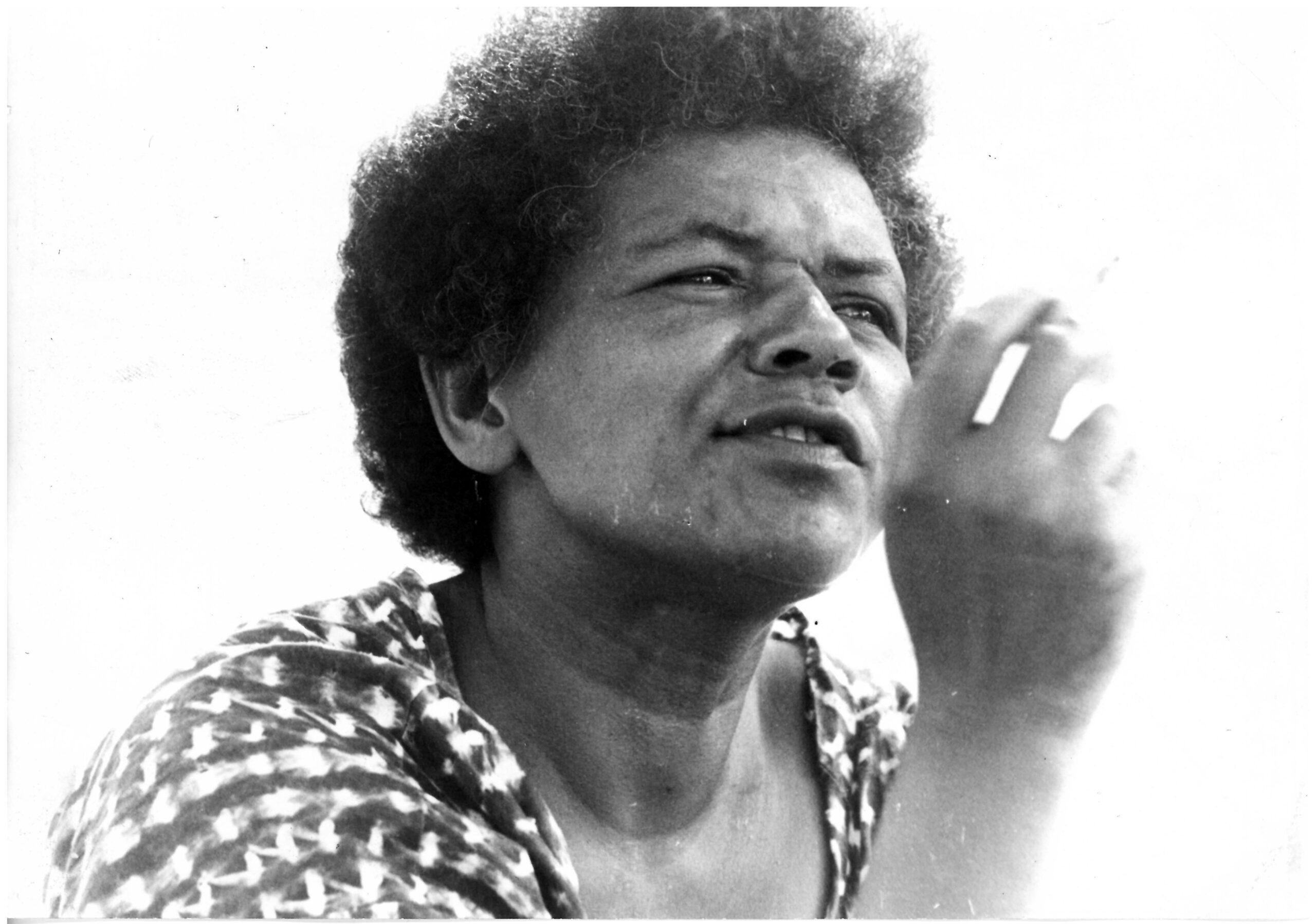
MONANGAMBÉÉÉ
France, Angola, Algeria | 1969 | 16 min | b.w. | o.v Portuguese, Makonde
With Monangambééé, Sarah Maldoror launched a cinema that broke colonial silence through poetry and fire. Inspired by a short story by José Luandino Vieira, the film describes the arrest of an Angolan activist and the misunderstanding that seals his fate: his simple request for a “complete course” is mistaken for an encoded message. The atrocious torture that ensues is depicted with an essential, deeply human perspective. The free jazz played by the Chicago Art Ensemble does not accompany, but rather vibrates, screams, and echoes along with the bodies. The film is a political act but also an act of love for the gestures of resistance. Maldoror films pain without ever giving in to voyeurism, thus creating a work that is instantly classic in its formal radicalism. A dazzling debut. (L.F.)


